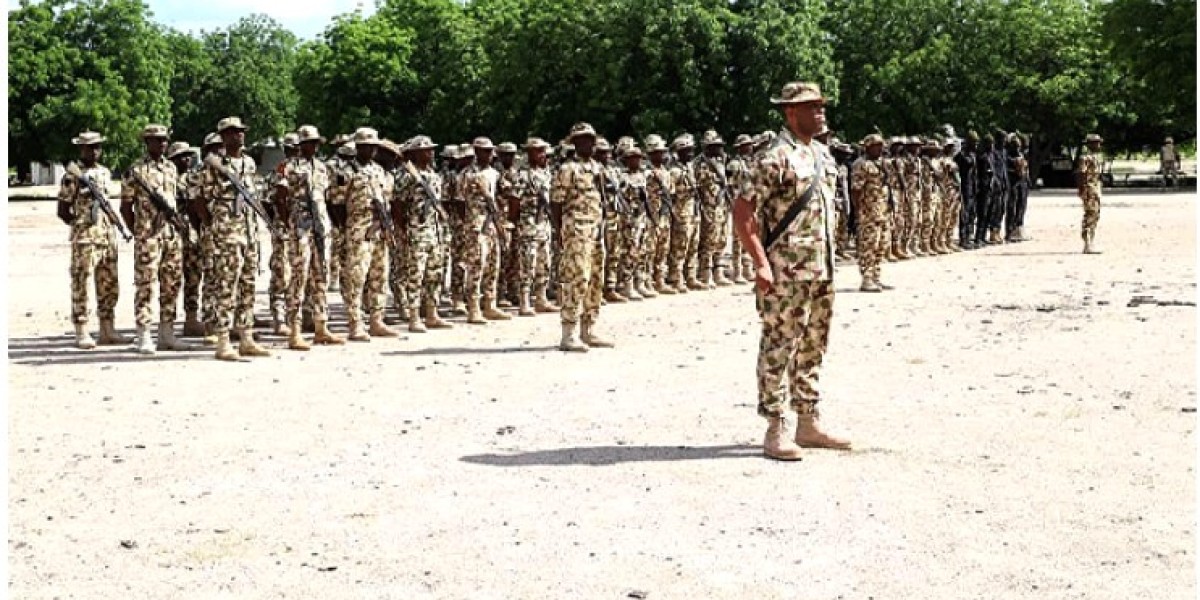A notorious Boko Haram terrorist has reportedly surrendered to troops of the Multinational Joint Task Force (MNJTF) in Borno State, marking a significant milestone in the ongoing efforts to combat insurgency in the region. The surrender comes as a result of increased military pressure and targeted operations against the terror group, which has plagued Nigeria and its neighboring countries for over a decade.
The Surrender
According to reports from the MNJTF, the terrorist, whose identity remains undisclosed for security reasons, voluntarily laid down arms and turned himself in to military forces stationed in Borno State. This marks a critical development in the fight against Boko Haram, a group known for its ruthless attacks on civilians, schools, and government institutions, particularly in the northeastern part of Nigeria.
The MNJTF, a regional military coalition made up of forces from Nigeria, Chad, Niger, and Cameroon, has been instrumental in pushing back Boko Haram forces in recent years. The joint efforts have weakened the group’s operational capacity, driving many of its members to seek alternative means of escape, including surrender.
A Turn in the Battle Against Insurgency
Military officials have credited the recent surge in surrenders to intensified pressure from ongoing military operations targeting Boko Haram strongholds. The Nigerian military, alongside the MNJTF, has focused on disrupting supply routes, launching airstrikes, and raiding camps where the group operates.
In response to this pressure, several key figures within the group have chosen to surrender in recent months, signaling a potential turning point in the long-standing battle. However, experts warn that while individual surrenders are a positive sign, the insurgency remains a serious threat, with pockets of resistance still active in remote areas.
Reintegration and Rehabilitation
The Nigerian government has implemented a program aimed at rehabilitating former Boko Haram members who surrender. Known as “Operation Safe Corridor,” the initiative offers former fighters a chance at reintegration into society after undergoing a comprehensive deradicalization process.
This program has sparked mixed reactions, with some supporting the initiative as a means of fostering peace, while others have raised concerns about the reintegration of individuals responsible for heinous crimes. Nonetheless, the government sees this as a critical strategy in reducing the number of active insurgents and restoring long-term peace to the region.
Looking Ahead
The surrender of this high-profile terrorist adds to a growing number of Boko Haram members who have chosen to give up arms. The military’s approach of combining force with outreach programs like deradicalization seems to be paying off, but the situation remains fragile. Boko Haram’s continued activities in isolated areas and the rise of splinter groups like the Islamic State West Africa Province (ISWAP) suggest that there is still a long road ahead in achieving lasting peace.
As the Nigerian military and the MNJTF continue their operations, all eyes will be on how effectively surrendered insurgents are handled and what further actions will be taken to dismantle the remaining elements of the group.
Conclusion
The surrender of a notorious Boko Haram terrorist in Borno represents a noteworthy victory in the fight against insurgency. While this is a step in the right direction, the battle to restore peace in the northeastern region is far from over. Continued military efforts, combined with rehabilitation initiatives, will be key to curbing the threat of Boko Haram and ensuring long-term stability in Nigeria and its neighboring countries.



